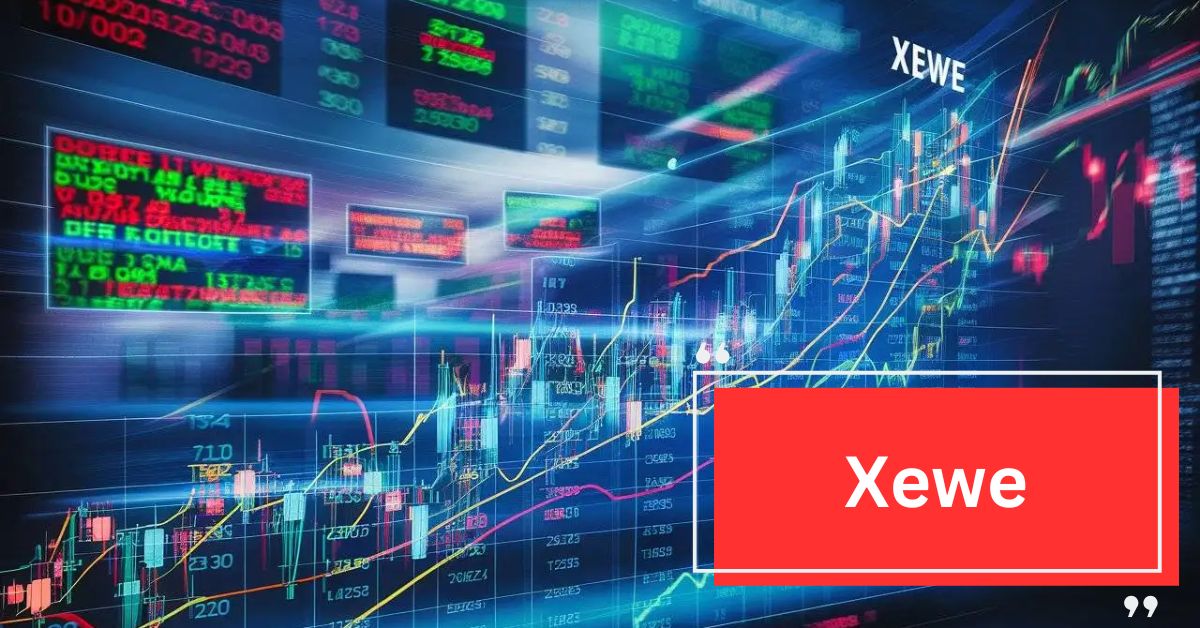Xewe – The Ultimate Guide For You!
I’ve been exploring the Xewe ETF and love how it balances sustainability with diversification. The equal weighting and ESG focus align perfectly with my investment goals, and I appreciate the EUR hedging for added stability. It’s been a solid choice for my portfolio.
The Xewe ETF (Xtrackers S&P 500 Equal Weight ESG UCITS ETF) aims to track the S&P 500 Equal Weight ESG Index, focusing on sustainable, ESG-compliant companies. It features equal weighting, EUR currency hedging for eco-friendly investment.
In this article, we will explore the Xewe ETF, a unique investment vehicle that tracks the S&P 500 Equal Weight ESG Index. We’ll dive into its key features, including its focus on sustainability, equal weighting, and how it integrates ESG criteria into its investment strategy.
How does the Xewe ETF track the S&P 500 Equal Weight ESG Index?
The Xewe ETF tracks the S&P 500 Equal Weight ESG Index by investing in all the companies included in the index with equal weight. Unlike traditional indices where larger companies dominate, the equal weighting approach ensures that each company has the same impact on the ETF’s performance. This method provides a more balanced exposure across various companies.
Additionally, the ETF follows strict Environmental, Social, and Governance (ESG) criteria to select companies. It includes only those with strong ESG scores while excluding businesses involved in controversial activities. This focus on sustainability helps investors align their portfolios with ethical and responsible investing principles.
What makes the Xewe ETF different from traditional ETFs?
The Xewe ETF stands out from traditional ETFs primarily due to its equal weighting strategy. Unlike most ETFs that weight companies based on their market capitalization, Xewe gives each company the same weight. This means no single company can dominate the index, providing more balanced exposure across all included stocks.
Another unique feature of the Xewe ETF is its focus on Environmental, Social, and Governance (ESG) criteria. While traditional ETFs might include companies based solely on financial metrics, Xewe selects its holdings based on their ESG performance. This approach ensures that investors are supporting companies with strong sustainability practices and ethical standards.
What are the key benefits of investing in the Xewe ETF?
Sustainable Investment Focus:
The Xewe ETF emphasizes companies with strong environmental, social, and governance (ESG) practices. By investing in businesses committed to sustainability, you contribute to responsible investing and align your portfolio with ethical standards.
Equal Weighting Approach:
Unlike traditional market-cap weighted indices, the Xewe ETF applies an equal weight to each company. This approach helps avoid overexposure to any single stock, providing a more balanced and diversified investment across the S&P 500.
EUR Currency Hedging:
For investors in Europe, the Xewe ETF offers EUR currency hedging. This feature reduces the impact of currency fluctuations between the USD and EUR, providing more stable returns for EUR-based investors.
Accumulating Dividends:
The Xewe ETF reinvests dividends back into the fund, which can enhance long-term growth through compounding. This accumulating dividend policy can be advantageous for investors looking to build wealth over time.
Broad Diversification:
By tracking the S&P 500 Equal Weight ESG Index, the Xewe ETF offers exposure to a wide range of sectors and companies. This broad diversification helps spread risk and can lead to more stable performance compared to investing in individual stocks.
How does the Xewe ETF incorporate ESG criteria?
The Xewe ETF incorporates ESG criteria by selecting companies based on their Environmental, Social, and Governance (ESG) performance. This means that the ETF focuses on businesses that are committed to sustainable practices, social responsibility, and strong governance.
Companies involved in controversial industries or those failing to meet specific ESG standards are excluded, ensuring the fund aligns with ethical and sustainable investment principles.
By using ESG criteria, the Xewe ETF promotes responsible investing and helps investors put their money into firms that contribute positively to society and the environment. This approach not only supports sustainability but also provides a way for investors to align their financial goals with their values.
What is the expense ratio of the Xewe ETF?
The Xewe ETF has an expense ratio of approximately 0.17% per annum. This means that for every $1,000 invested, about $1.70 is used to cover the fund’s management and operational costs each year.
This low expense ratio is advantageous for investors, as it helps keep costs down and allows more of the investment returns to stay in your portfolio. It’s a good example of how Xewe offers cost-effective exposure to sustainable and diversified U.S. equities.
How does the Xewe ETF’s equal weighting approach affect the performance and risk compared to traditional ETFs?
The Xewe ETF’s equal weighting approach means that every company in the index has the same level of influence on the ETF’s performance, regardless of its market size. This strategy contrasts with traditional ETFs, where larger companies have a greater impact. By giving equal weight to each company, Xewe ensures that smaller firms have the same potential to contribute to the fund’s returns, potentially leading to more balanced performance across different sectors.
This equal weighting can reduce the risk associated with investing heavily in a few large companies. As a result, the Xewe ETF may offer more stability and less volatility compared to market-cap weighted funds. However, it might also mean that the ETF could underperform in strong bull markets driven by large-cap stocks, as smaller companies might not grow as quickly.
Conclusion:
The Xewe ETF (Xtrackers S&P 500 Equal Weight ESG UCITS ETF) seeks to replicate the performance of the S&P 500 Equal Weight ESG Index, which highlights companies that meet ESG sustainability criteria. It uses an equal weighting strategy to support eco-friendly investments.
FAQs
What is the advantage of equal weighting in the Xewe ETF?
Equal weighting allows each company to have the same impact on the ETF’s performance, providing more balanced exposure across sectors.
How frequently are dividends reinvested in the Xewe ETF?
The Xewe ETF follows an accumulating dividend policy, meaning dividends are reinvested into the fund rather than paid out.
What sectors are prominently featured in the Xewe ETF?
The Xewe ETF includes diverse sectors with significant exposure to technology, financials, and industrials, among others.
When was the Xewe ETF launched?
The Xewe ETF was launched on May 17, 2023, bringing a focus on sustainable investment strategies to the market.
Also Read:







